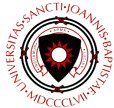

USPP


Unit for the Study of Personality in Politics
The Political Personality of Patrick J. Buchanan
The Political Personality of Reform Party Candidate Patrick J. Buchanan by Aubrey Immelman, Jason Bartos, & Nicholas Buhl. Research paper, Unit for the Study of Personality in Politics, Saint John’s University and the College of Saint Benedict, January 1999. [Available upon request to academics, political psychology specialists, and professional journalists; 23 pages].
Abstract
This paper presents the results of an indirect assessment of the political personality of Patrick Buchanan, contender for the Reform Party nomination for the U.S. presidential election of 2000, from the conceptual perspective of Theodore Millon. Information concerning Pat Buchanan was collected from published biographical accounts and political reports in the print media, and synthesized into a personality profile using the second edition of the Millon Inventory of Diagnostic Criteria (MIDC), which yields 34 normal and maladaptive personality classifications congruent with Axis II of DSM-IV.
The personality profile yielded by the MIDC was analyzed on the basis of interpretive guidelines provided in the MIDC and Millon Index of Personality Styles manuals. Buchanan’s primary personality patterns were found to be Dominant/controlling and Conscientious/dutiful.
Pat Buchanan’s major personality-based strengths with reference to his presidential campaign are strong political skills in the areas of persuasiveness and social dominance; the ability to mobilize support and to orchestrate and execute a strategic campaign; toughness; and conscientiousness, including loyalty, diligence, and attention to detail.
His personality-based limitations are closed-mindedness and an unwillingness to compromise; a judgmental, intolerant orientation, which can provoke or exacerbate conflict; potential deficits in the domain of consolidation, which may prevent him from consummating his policy objectives in the event that he is elected; and a potentially self-defeating combination of controlling dominance and a moralistic conscience.
Page maintained by Aubrey Immelman, USPP director and Suzanne Wetzel, USPP contributor
www.csbsju.edu/uspp/ExecutiveSummaries/Buchanan-Abstract.html
Last modified: 04/06/2000